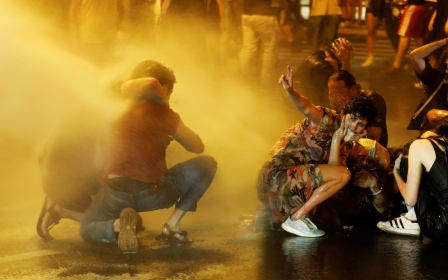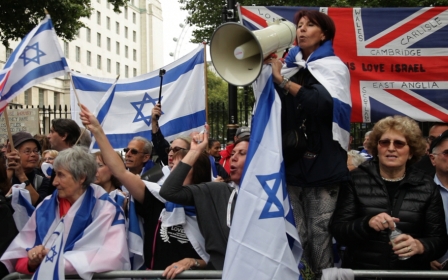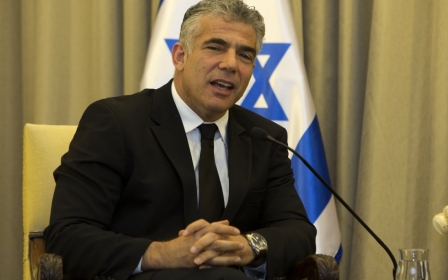Protests rock Tel Aviv and Jerusalem amid calls for Netanyahu to go
Thousands of protesters gathered outside the Jerusalem residence of Israeli Prime Minister Benjamin Netanyahu on Saturday, demanding his resignation over alleged corruption and his government's handling of the coronavirus crisis.
Hit by high unemployment, a sharp rise in Covid-19 cases and reimposed coronavirus restrictions, Israelis have taken to the streets in almost daily demonstrations against the government.
Public anger has been compounded by corruption alleged against Netanyahu, who went on trial in May for bribery, fraud and breach of trust - charges he denies.
In Jerusalem, the demonstrators marched through the streets, calling for Netanyahu's resignation as police used tear gas, water cannons and mounted units to disperse the crowds. Several protesters were arrested after police said they had been sprayed with pepper spray.
In Tel Aviv, Israel's commercial hub, thousands gathered at a rally by the beach, demanding better state aid to businesses hurt by coronavirus restrictions and to people who have lost jobs or have been put on unpaid leave. Unemployment presently stands at 21 percent.
New MEE newsletter: Jerusalem Dispatch
Sign up to get the latest insights and analysis on Israel-Palestine, alongside Turkey Unpacked and other MEE newsletters
Meanwhile, a hundred or so protesters gathered in the main square of Mitzpe Ramon in Israel's Negev desert.
Israel reopened schools and many businesses in May, lifting restrictions that had flattened an infection curve after a partial lockdown imposed in March.
But with the infection rate rising sharply in the past few weeks, many public health experts said the government had moved too fast while neglecting to take the necessary epidemiological steps to control the pandemic once the economy reopened.
Though Netanyahu last week announced a welfare package to support out-of-work Israelis and businesses, many say the government is not doing enough to protect them, and complain that less than half of the $29bn in assistance already pledged has been distributed.
The government has also stepped up its surveillance of the population, passing legislation that gives the Shin Bet domestic security agency new powers to track people suspected of being infected.
A poll by the nonpartisan Israel Democracy Institute on Tuesday found only 29.5 percent of the public trust Netanyahu's handling of the crisis.
The demonstrations erupted on 14 July to coincide with Bastille Day, as organisers urged Israelis to use the day to demand "liberty, equality, and fraternity", echoing the French Revolution.
Protesters said they would camp outside Netanyahu's residence and stay there until he stepped down from power.
Israel has reported almost 50,000 coronavirus cases and 400 deaths.
Middle East Eye delivers independent and unrivalled coverage and analysis of the Middle East, North Africa and beyond. To learn more about republishing this content and the associated fees, please fill out this form. More about MEE can be found here.




